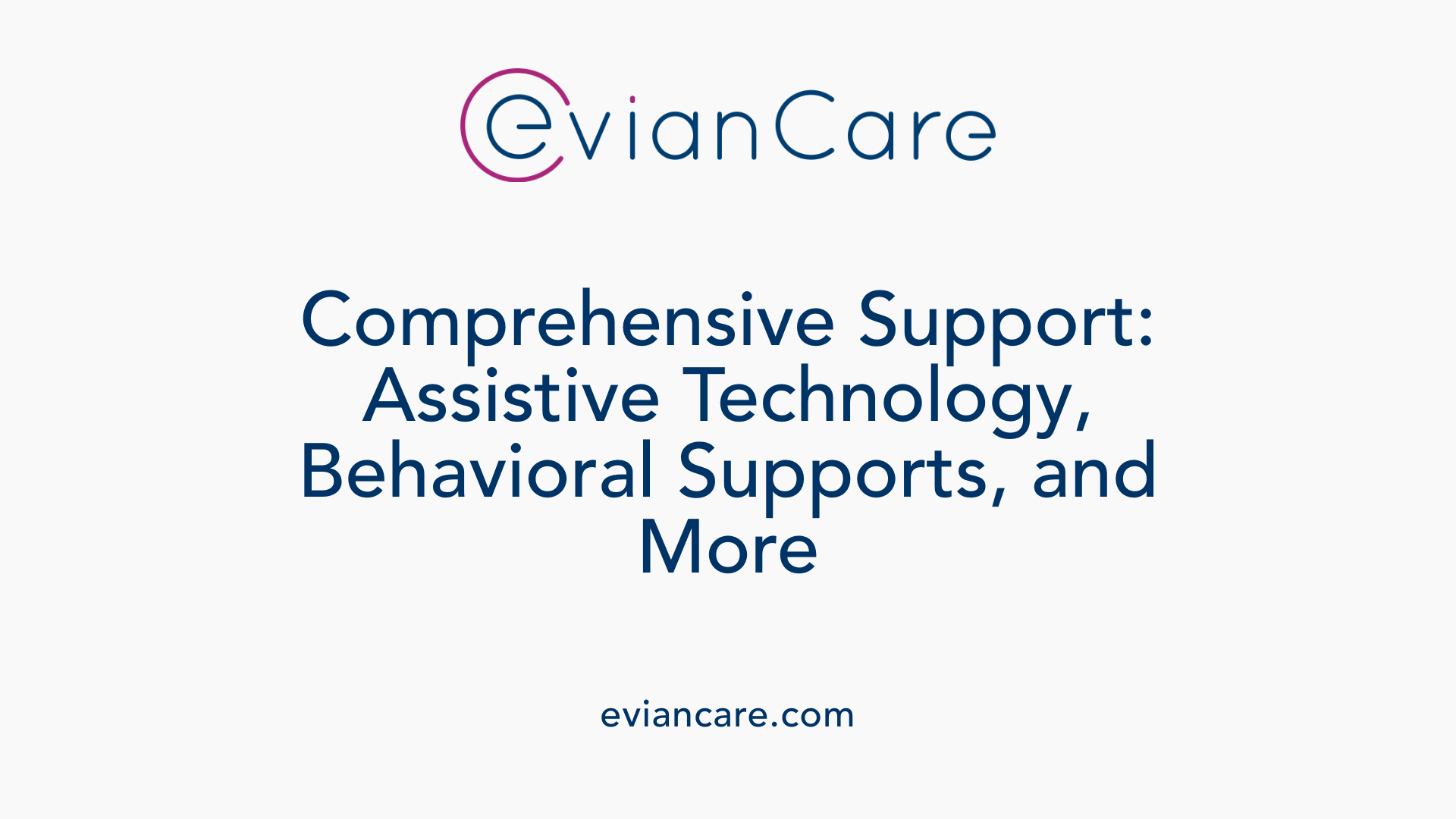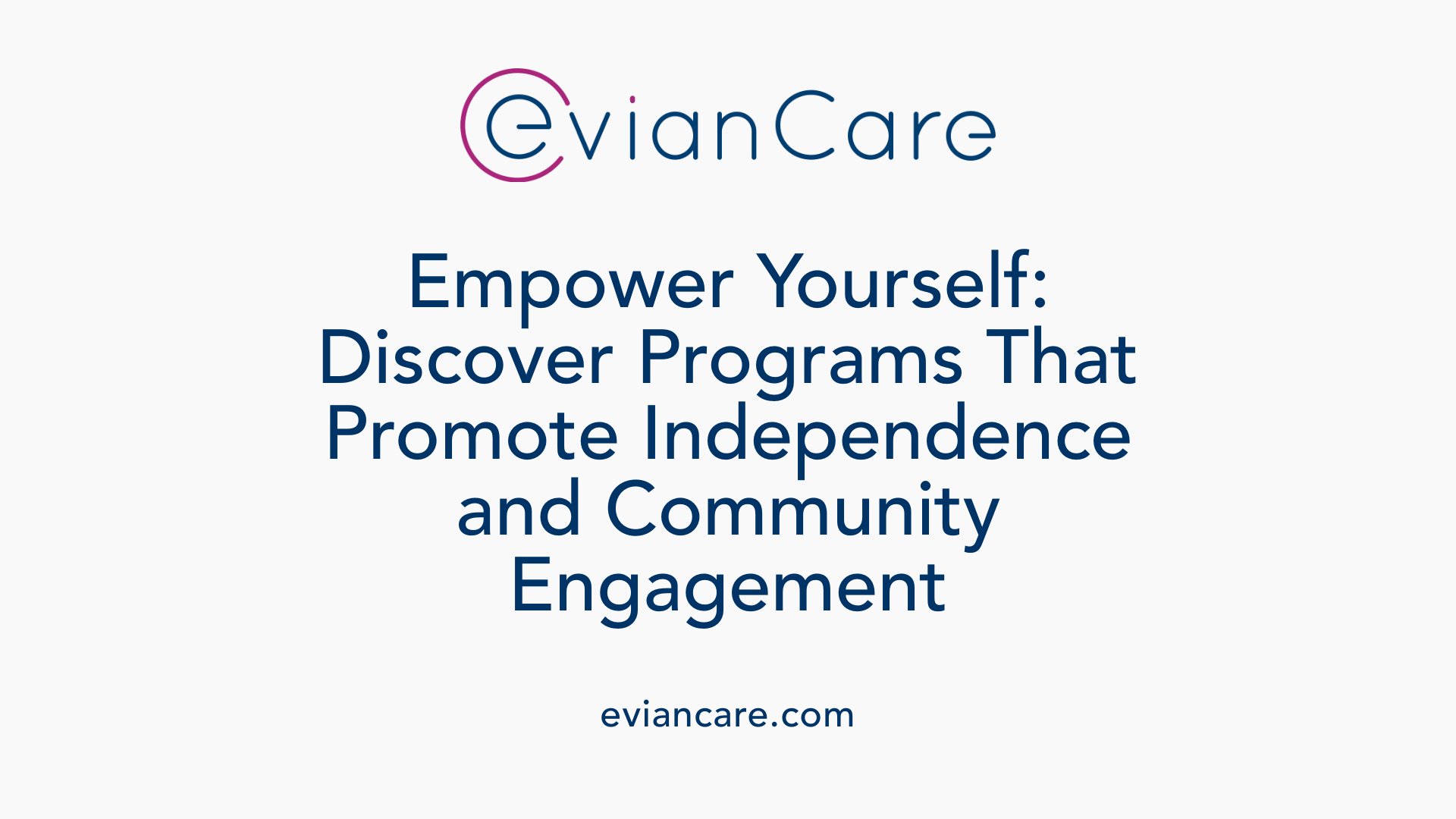
Understanding the Role of DDD Services in Family Caregiving
Developmental Disabilities Division (DDD) services play a vital role in supporting families and caregivers of individuals with developmental disabilities. These services offer a broad array of personalized resources, community-based programs, and residential options designed to improve quality of life and foster independence. This article explores the numerous benefits of DDD services, the resources they provide, and how they support family well-being, ultimately helping families navigate the complexities of caregiving while maintaining their emotional, physical, and financial health.
Support Systems and Resources Offered by DDD Services

What resources and support are provided by DDD services?
The Division of Developmental Disabilities (DDD) offers a variety of supports designed to improve independence and community integration for individuals with developmental disabilities. These include assistive technology, behavioral supports, day programming, employment services, therapies, transportation, and environmental modifications.
Assistive technology devices help individuals communicate better, access their environment, and perform daily activities more independently. Examples include communication devices, adaptive aids, and specialized software.
Behavioral supports are tailored interventions that help manage challenging behaviors and promote positive behaviors, often involving behavioral therapy and counseling.
Day programs provide structured activities that foster skill development, social interaction, and community engagement, supporting personal growth and daily routine adherence.
Employment services focus on supported employment opportunities, helping individuals find and maintain meaningful jobs within their communities.
Therapies such as occupational, speech, and physical therapy are essential for addressing specific health and developmental needs, improving overall function.
Transportation services, including accessible transit options, enable individuals to attend appointments, participate in community activities, and go to work, reducing mobility barriers.
Environmental modifications involve making physical changes to homes or vehicles, such as ramps, grab bars, or accessible doorways, to increase safety and independence in daily living.
These supports are primarily funded through Medicaid waivers like the Community Care Program (CCP) and the Supports Program (SP). These programs provide flexible funding for a range of services, including in-home, community-based, and residential supports.
Families can also access specialized facilities and opt for self-directed services, empowering individuals and families to manage care according to their preferences and needs.
Overall, DDD services aim to foster greater autonomy, enhance quality of life, and promote active participation in community life for individuals with developmental disabilities.
Supporting Individual Independence and Community Integration

How do DDD services improve quality of life?
Developmental Disabilities Division (DDD) services significantly enhance the lives of individuals with disabilities by focusing on independence, community involvement, and personal choice. These services develop personalized care and support plans that incorporate therapies, employment support, and opportunities for social participation.
Through programs like 'Possibilities Now!', individuals are encouraged to advocate for themselves and become active members of their communities. Such initiatives foster social inclusion, helping individuals build friendships and participate in community events, which are crucial for emotional and social well-being.
Supported employment programs play an important role by providing job opportunities tailored to each person's skills and interests. This not only promotes economic independence but also boosts self-esteem and a sense of purpose.
Support systems are designed to empower individuals to make informed decisions about their lives, exercising their rights and preferences. Exercises in self-determination are central, encouraging personal control over choices related to daily routines, social activities, and future planning.
Community programs delivered through DDD services help individuals integrate into society fully. Participation in recreational activities, educational workshops, and civic engagement programs enhances skills, confidence, and community ties.
Overall, these tailored services promote healthier, more fulfilling lives by nurturing independence, respecting individual choices, and encouraging active community involvement.
| Program Type | Focus | Benefits | Examples |
|---|---|---|---|
| Community programs | Social inclusion | Builds community ties; enhances social skills | 'Possibilities Now!', local clubs |
| Employment opportunities | Vocational independence | Provides meaningful work; increases self-esteem | Supported employment services |
| Community inclusion | Participation | Fosters community sense; reduces isolation | Recreational activities, support groups |
| Self-determination programs | Decision-making | Empowers individual choices | Personal planning, advocacy training |
For more insights on how DDD services can improve quality of life, search for 'Improving Quality of Life with DDD' or consult local agency resources.
Family Support and Caregiver Resources

What support programs are available to families?
Families caring for loved ones with developmental disabilities or aging caregivers have access to a variety of programs designed to lessen their burden and promote quality of life. Respite care is among the most widely utilized services, offering temporary relief by arranging for family members to receive care through in-home visits or community-based programs. This enables caregivers to rest, manage their personal needs, or attend to other responsibilities.
Home modifications are another vital support, helping to create safer and more accessible living environments. These physical changes include installing ramps, grab bars, and other structural adaptations to facilitate independence and reduce risk.
In addition, families can access assistance with camp participation and recreational activities that foster social engagement, skill development, and community inclusion. Support groups and counseling services are also available, providing emotional support, connecting families with others facing similar challenges, and offering guidance on navigating complex systems.
Legal services can help families with planning for the future, managing guardianship, and addressing legal concerns related to caregiving. Together, these resources work to reduce caregiver stress, support family cohesion, and ensure individuals with developmental disabilities and aging family members receive personalized, respectful care.
Additional information
For those seeking more details about available programs, searching for “Family Support Programs for Developmental Disabilities” can provide comprehensive resources and contacts suitable for specific needs and locations. These programs promote independence, well-being, and long-term stability, helping families thrive despite the challenges of caregiving.
Eligibility Criteria and Access to Services

What are the eligibility requirements for DDD services?
Eligibility for Developmental Disabilities Division (DDD) services generally requires a diagnosis of a developmental disability that significantly impacts daily functioning. This condition can include autism, Down syndrome, cerebral palsy, or intellectual disabilities, among others. Applicants must undergo an assessment process that involves healthcare professionals evaluating the individual's needs and confirming the diagnosis.
Supporting documentation is essential, including proof of identity, health status, and medical records. The process also assesses the individual's Medicaid eligibility, as many DDD services are funded through Medicaid waivers or state programs. Medical necessity is a crucial factor, ensuring services are provided based on individual needs that impact daily life and independence.
Support coordination plays a vital role in helping families and individuals understand the available options and navigate the application process. Support coordinators assist with assessments, gather necessary documentation, and help families access the full range of personalized supports. These eligibility criteria are designed to focus resources on those most in need, allowing for tailored intervention plans that promote independence and improve quality of life.
Overall, the combination of diagnosis, assessment, Medicaid eligibility, and professional support ensures that individuals who can benefit most from DDD services are able to access comprehensive and individualized supports tailored to their specific needs.
Community-Based Care and Long-term Support Strategies

How do DDD services support community-based living?
Support for community living includes a wide array of services designed to help individuals with disabilities remain independent in familiar settings. These include assisted living options, employment programs, and modifications to homes and vehicles, such as ramps, grab bars, and other adaptive features that improve accessibility and safety.
Long-term planning is essential for ensuring continuous support. Support brokerage services and personalized care plans enable families and individuals to identify future needs and maintain stability. These services help coordinate resources, arrange for necessary modifications, and facilitate access to community activities.
By focusing on these comprehensive supports, the chance of institutional placement decreases. Instead, individuals with disabilities are encouraged to participate actively in their communities, fostering a greater sense of belonging and promoting social inclusion.
Additional Resources
| Program/Service | Description | Focus Area | Eligibility & Access |
|---|---|---|---|
| Community Living Programs | Various programs support independent living arrangements | Housing, Community Integration | Usually require assessment and referral from support agencies |
| Supported Employment | Employment opportunities with workplace supports | Employment, Skill Development | Available through vocational programs and supported employment services |
| Home & Vehicle Modifications | Physical changes to environment or vehicle | Accessibility, Safety | Funded through Medicaid waivers or family support services |
| Long-term Planning | Assistance with future planning for care needs | Future Care, Financial Planning | Provided by support coordinators and care agencies |
Additional Information
- Services are tailored to meet individual needs, preferences, and goals.
- Programs promote inclusion, safety, and independence.
- Better community integration reduces reliance on costly institutional settings.
Search for More
Explore "Community-Oriented Support for People with Disabilities" to learn about additional strategies and community resources available.
Empowering Families for a Better Future
Developmental Disabilities Division services are essential in empowering families and caregivers, providing the support needed to improve quality of life, foster independence, and promote community participation. By offering personalized resources, respite care, and community-based programs, these services help families navigate the challenges of caregiving, prevent burnout, and ensure individuals with developmental disabilities can lead rich, fulfilling lives. As the landscape of caregiving evolves with demographic shifts and increasing needs, access to comprehensive, culturally sensitive, and flexible support remains crucial in strengthening families and supporting their loved ones.
References
- How Developmental Disabilities Relief Care Can Benefit Your Family
- Supporting Adults with Intellectual and Developmental Disabilities ...
- Family Support - AAIDD
- Caregiver Support and Resources
- The Benefits of Parents as Paid Care Providers for Home and ...
- Texas Home and Community-Based Supports and Services
- [PDF] Family Support Services - NJ.gov
- How a Caring Family and the Bond Between Siblings Helps a DDD ...












